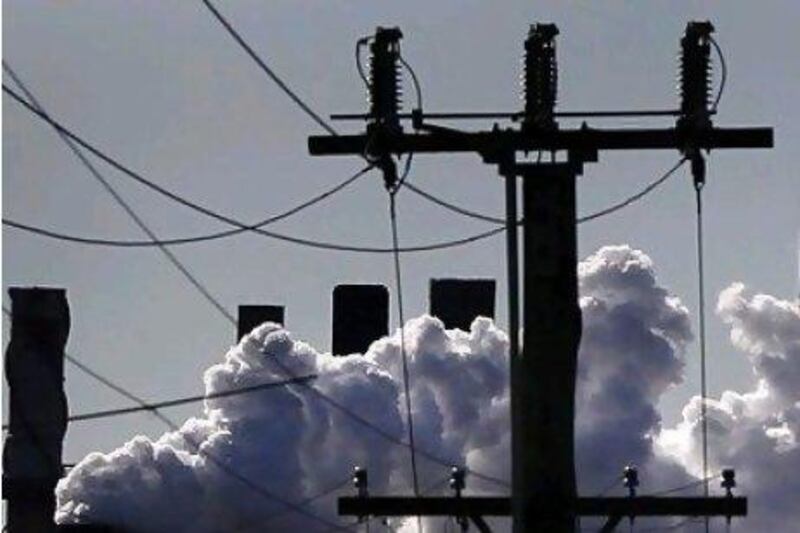The Australian government seems determined to press ahead with heavy taxes on its lucrative commodities and resource industry at a time when both the global and Australian economies lie in the balance.
The carbon tax, which will be imposed from the middle of next year and penalise the country's biggest polluters with a A$23 (Dh89) a tonne tax on emissions, sits side by side with a mining tax (known euphemistically as the mineral resources rent tax), which penalises coal and iron ore producers that make excessive profits.
Both taxes will hit the resource industry at about the same time and it is causing some vigorous head-shaking - not just among local players. Foreign investors in the Australian resource sector are now beginning for the first time to speak of "sovereign risk" and "Australia" in the same breath.
"Clearly there are sovereign risk issues in the Democratic Republic of Congo, in Guinea, in Colombia where we operate, but the Australian risk is now a consideration," Graham Ehm, AngloGold Ashanti's executive vice president of Australasia, told a conference in Western Australia.
The conference, known locally as "diggers and dealers", is the biggest mining conference in Australia. Not everyone at the conference was convinced the carbon tax would hamstring industries, but it was hardly welcomed.
Barrick Gold, the world's biggest gold producer, said the tax on carbon emissions would increase the cost of production at its Australian mines by about A$12 an ounce. Its verdict was that it was on watch. "The cost [so far] is not insignificant but it is manageable," said Gary Halverson, Barrick's Australia-Pacific president.
Mr Ehm said the tax would put the company's Australian operations at a competitive disadvantage to its other operations around the world. It has about 20 gold mines in 10 countries, none of which "is subject to a carbon tax".
With a A$23 per tonne carbon impost, Australian gold would be at a A$20 per ounce disadvantage, Mr Ehm estimated.
By the time the carbon tax morphs into an emissions trading scheme in 2015, he forecast the cost would blow out to A$40 to A$60 per ounce.
There were also fears among foreign delegates that the mineral resources rent tax would grow to encompass all metals (including gold), and not just the iron ore and coal industry.
To many players, it is this tax which is the least conscionable. It comes at a time when there are many new mining projects coming on stream, attempting to tap booming commodity prices driven by the rapid industrial growth of China and India.
Such growth in the industry has created infrastructure bottlenecks and labour shortages. Most of the big iron ore and coal producers have been granted billions of dollars of deductions from the mining tax, which will barely dent their profits.
If the big players' profits are barely touched, there are fears that other metals miners might be brought into the tax regime to catch the revenue shortfall.
Small and medium players - and those still developing iron ore and coal seams - are likely to be the most heavily affected.
David Flanagan, the managing director of Atlas Iron, said the tax would act against new entrants. There was no provision for transition given to those who move into production after the tax is imposed next July.
"They will be hit with full-tote odds from day one," he said.
The government intends to use the revenue from the mining tax to cut the company tax rate, fund an increase in pension contributions, and make investments in infrastructure. But this cut virtually no ice with delegates.
The tax was a "disaster for the Australian mining industry", Andrew Forrest, the chairman of Fortescue Metals Group, told the conference. "I can almost hear Canada cheering."





